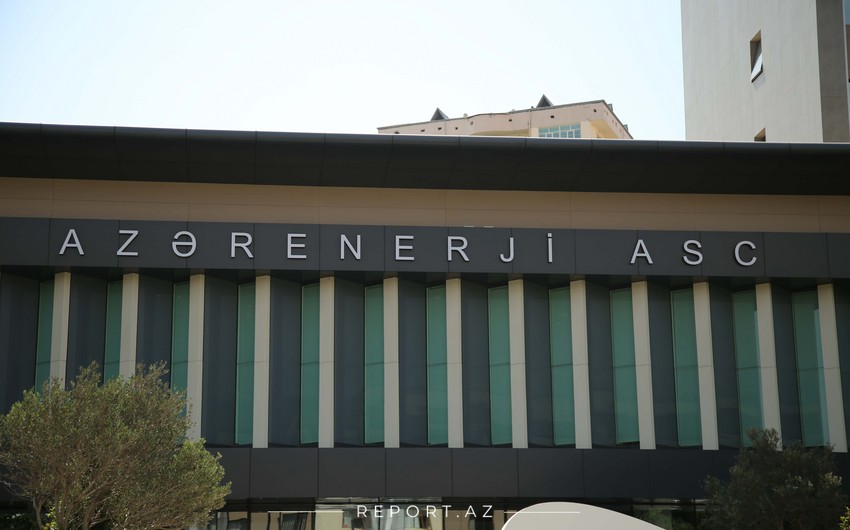S&P Global Ratings revised the outlook on Azerbaijan to negative from stable and affirmed the sovereign credit ratings because of material risks stemming from the recent military confrontation and economic repercussions related to the coronavirus pandemic and low oil prices.
Report informs referring to the agency.
"The credit quality of Azerbaijan-based electricity producer Azerenerji JSC, in our view, is closely tied to that of the sovereign because of the extremely high likelihood of extraordinary government support, and since all the company's debt is either guaranteed by the government or to the government. We expect Azerenerji will continue to enjoy solid support from the state, including equity injections, to cover a meaningful portion of its debt service. We are therefore revising our outlook on Azerenerji to negative from stable and affirming the ratings at 'BB/B'. The negative outlook reflects that on Azerbaijan, indicating that a downgrade of Azerenerji would follow a sovereign downgrade. MOSCOW (S&P Global Ratings) Oct. 27, 2020—S&P Global today took the rating actions listed above.
Mounting downside risk to the sovereign ratings also weighs on Azerenerji's credit quality because of a too high likelihood of extraordinary state support for Azerenerji, if needed.
The negative outlook on Azerbaijan reflects rising risks to Azerbaijan's fiscal performance, external balance sheet, and macro-financial stability amid the significant recent military escalation of the Nagorno-Karabakh conflict, which may take quite some time to resolve (see "Azerbaijan Outlook Revised To Negative On Rising Risks From Military Conflict Over Nagorno-Karabakh; Ratings Affirmed," published Oct. 23, 2020, on RatingsDirect). We believe there is an extremely high likelihood that Azerbaijan would provide timely and sufficient extraordinary state support to Azerenerji in the event of financial distress. We reflect this support by including a four-notch uplift in our 'BB' rating on the company. That is why a sovereign downgrade will likely result in a similar rating action on Azerenerji, leading to its outlook mirroring that on Azerbaijan.
That said, we expect the state will continue to ease pressure on Azerenerji's liquidity and leverage. At this time, about 85% of Azerenerji's debt is to the government, and the government guarantees the rest. The Ministry of Finance has a strong track record of providing financial support to Azerenerji (including paying debt interest for the company, equity injections, direct low-rate state borrowings, and tax benefits). We assume this will continue in 2020-2021. For instance, we understand that the government has budgeted sufficient funds to cover the company's debt and interest payments due in 2020 and 2021 if needed. Our base-case scenario does not envision any material costs or capital expenditure (CAPEX) for Azerenerji due to the Nagorno-Karabakh conflict.
We currently do not anticipate material damage to the company's assets due to the Nagorno-Karabakh military conflict; it's difficult to predict, however, so we can't rule it out. We believe the company might invest in developing the infrastructure on the Nagorno-Karabakh territory and that they would not be material or require any significant borrowing at the company level that wouldn't be supported by the government.
We also assume that if there is substantial damage to Azerenerji's assets that jeopardize the country's energy system, the government will intervene with the necessary financial aid. We believe that Azerenerji will refrain from raising third-party debt despite sizable CAPEX. Azerenerji's investment program, which we think might amount to Azerbaijan manat (AZN) 1.2 billion-AZN1.4 billion in 2020-2021, targets rehabilitation of the country's energy system. We expect the state to continue to co-finance Azerenerji's CAPEX via equity or direct state loans. The company will avoid any third-party debt not guaranteed by the government. That said, we forecast the company's leverage will remain nearly flat, with debt to EBITDA of about 4.5x in 2020-2021 (versus 4.4x in 2018). We believe that Azerenerji, like other government-relate entities in the country, won't undertake any new borrowings without the government's approval.
Conversely, we do not anticipate that the government will increase Azerenerji's tariffs, given its previous reluctance to do so due to social concerns. We assume Azerenerji will generate stable funds from operations (FFO) and partly finance its investment program with internal cash sources. The negative outlook on Azerenerji reflects that on the sovereign. If we lower our long-term rating on Azerbaijan by one notch, we would likely take a similar rating action on Azerenerji, all else remaining equal. We see a strong correlation in the credit quality of the company and that of the sovereign, given our view of an extremely high likelihood of extraordinary state support for Azerenerji. This is underpinned by our expectation that the government will continue to co-finance Azerenerji's large investment program and cover any liquidity shortages. In our base case, we expect the company will not issue new debt with third parties without government guarantees. Its structure and current asset composition will remain unchanged in the medium to long term.
Apart from a sovereign rating action, we could also downgrade Azerenerji if the company's stand-alone credit profile deteriorates or government support weakens. This could occur, for example, due to weak liquidity, a material depreciation of the local currency leading to higher leverage, new debt issuance without state guarantees (for example, to fund the company's large CAPEX needs), diminishing government commitment to support the company, changes in the government's mechanisms to monitor the company's finances, or privatization or unfavorable government intervention affecting the company's profitability or leverage. None of these scenarios, however, is our current base case. We could also downgrade Azerenerji if the government discontinues supportive measures, indicating a diminishing likelihood of extraordinary government support.
Currently, we see it as less likely given the importance of Azerenerji for the state and the existing state guarantees on the company's debt. We would revise the outlook to stable if we revised the outlook on the sovereign to stable."


 https://static.report.az/photo/332bb812-6a6a-3315-906b-d246d7218b6f.jpg
https://static.report.az/photo/332bb812-6a6a-3315-906b-d246d7218b6f.jpg

